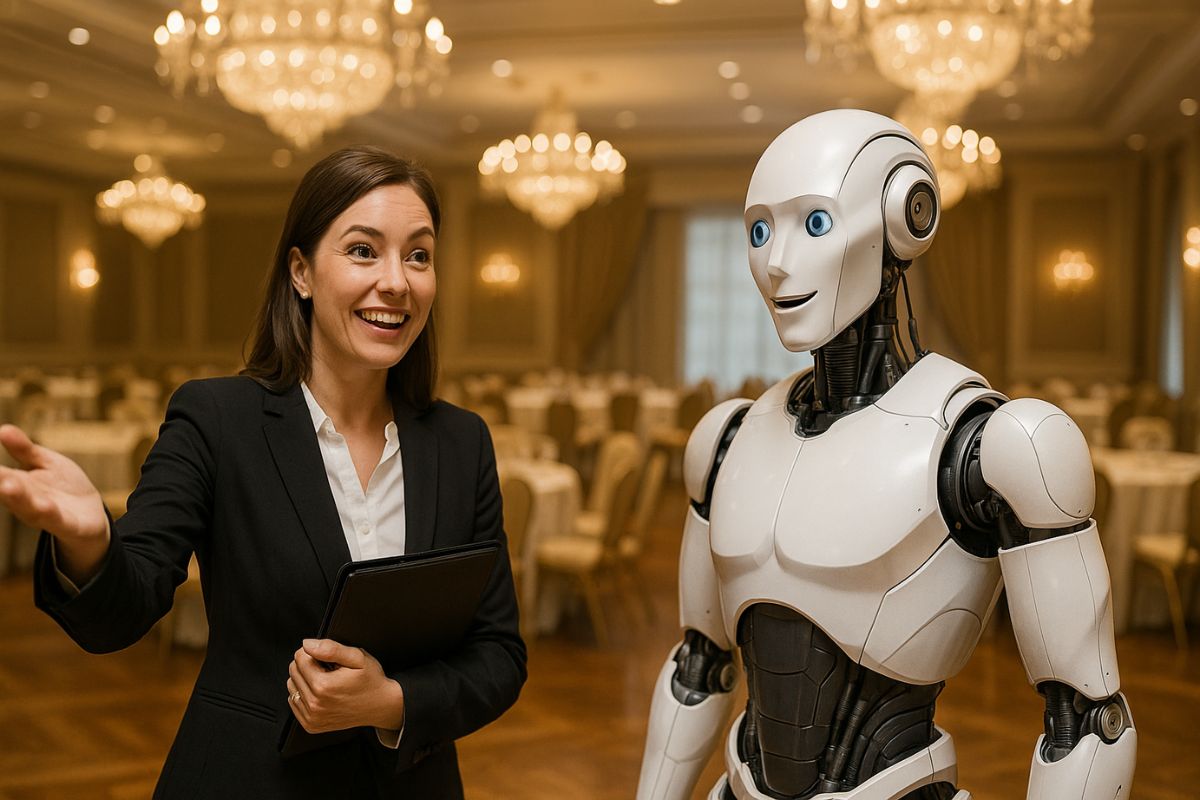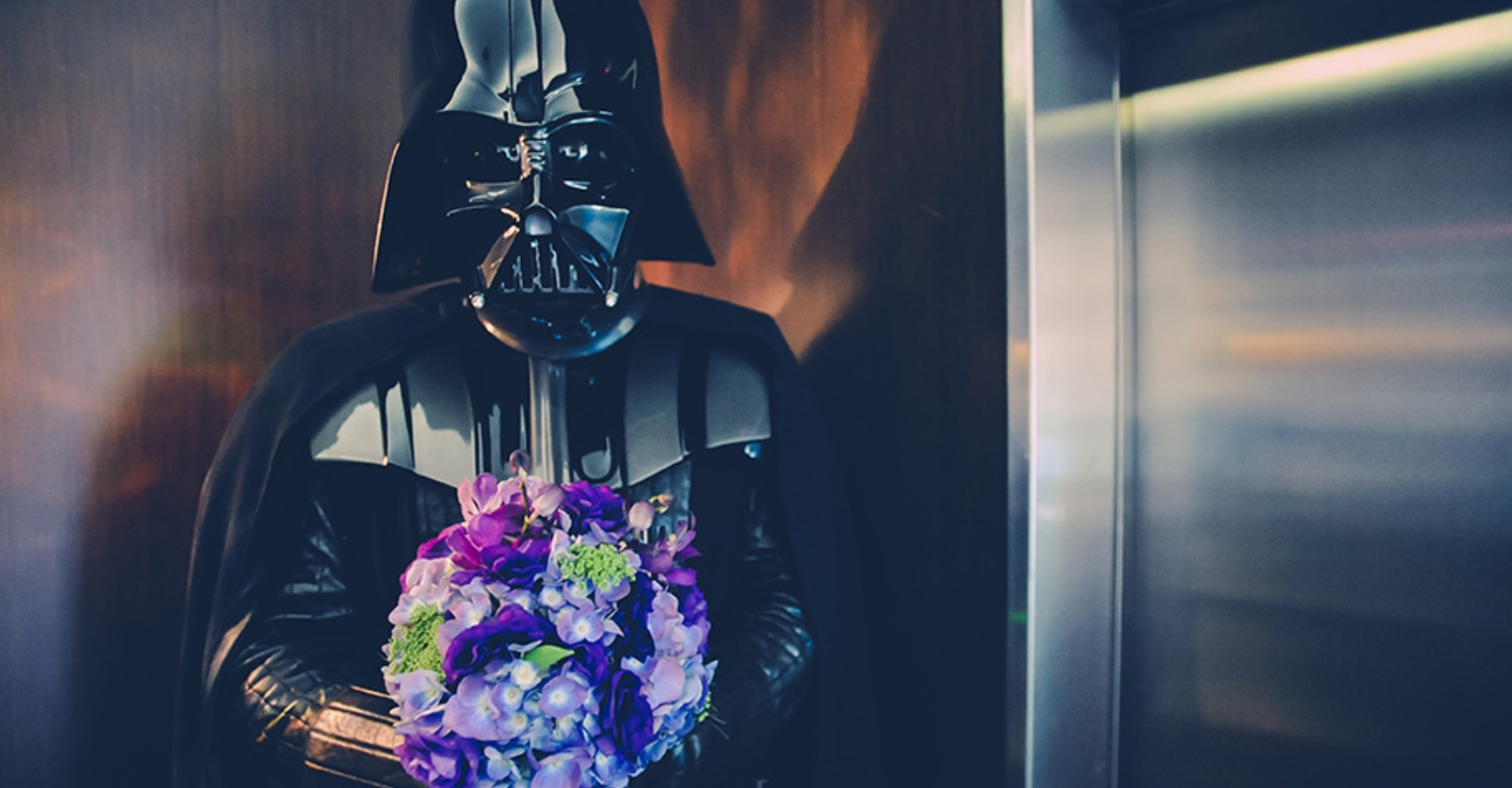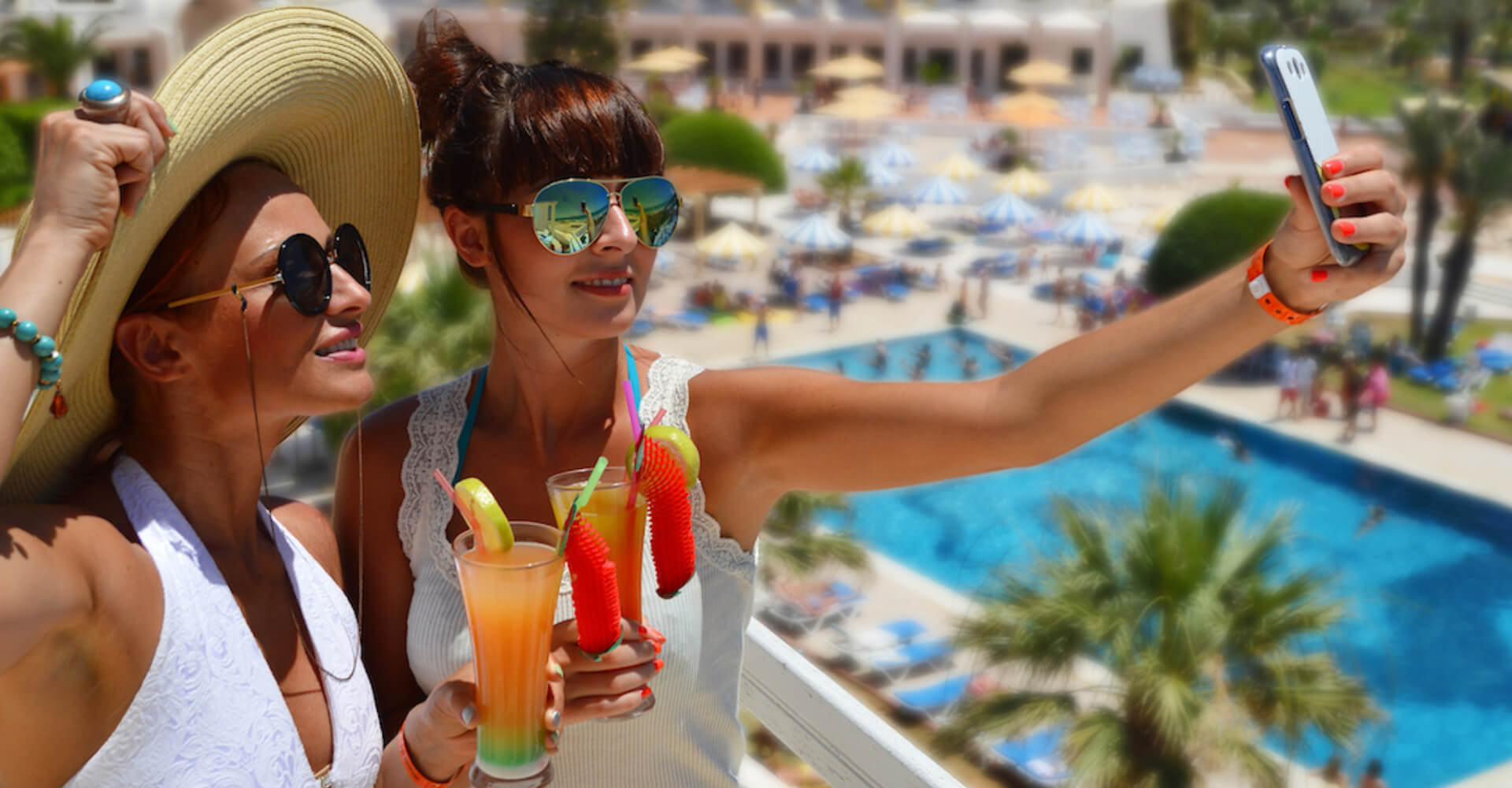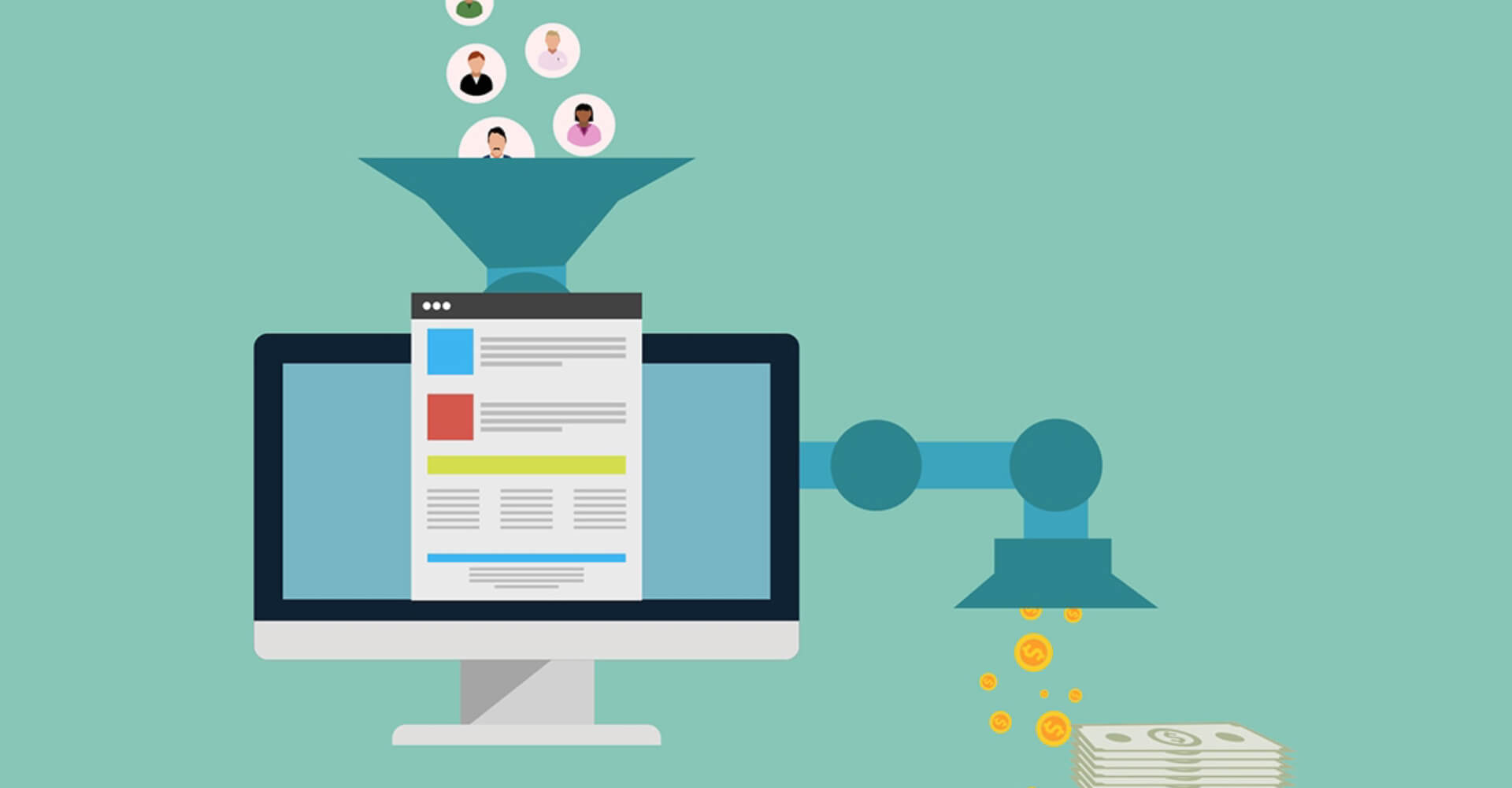
Trust, Team, and Tech: The AI-Driven Hotel Sales Strategy Every Property Needs
If you’re in hotel group sales, you might be asking yourself: “Why isn’t my outreach working anymore? Cold calls are ignored, email responses are dwindling, and even when planners visit our website, they don’t convert. How do we make sure AI and real buyers actually find us?”
That’s the exact challenge Cory Falter and I unpacked on The InnSync Show—why hotels need an AI-driven hotel sales strategy to stay visible and competitive.
The shift to AI-driven search means your first sales conversation now happens online long before your team ever gets a chance to pitch.
Cory says, “If your hotel isn’t feeding AI the right marketing signals, you won’t even make the shortlist.”
From all data I’m seeing, I completely agree.
Why Many Hotels Don’t Even Make the Shortlist
Think of AI as a buyer’s assistant who never sleeps.
It scans the digital landscape for reviews, FAQs, case studies, videos, press releases—and then decides which hotels feel most credible, relevant, and trustworthy.
In other words, it’s looking for E-E-A-T: expertise, experience, authoritativeness, and trustworthiness.
That means the first sales conversation doesn’t happen when your rep picks up the phone. It is most likely happening when AI reviews your content.
If you don’t have the right proof points in place? You might as well be invisible.
Relationships will always matter in hospitality, but today, they often start online, where trust and authority lead the charge. Without the right digital signals, sales teams may never get the chance to build those relationships in the first place.
What’s Turning Buyers Away Before They Even Call
We’ve seen it, you’ve probably seen it, and all the sales gurus preach it… outreach just doesn’t work like it used to. Cold calls and mass emails are noise in an already cluttered inbox.
Even I don’t want to be bothered with a generic sales pitch when I can ask AI for answers myself.
Then there’s the problem of how hotels show up online.
Too many websites look like empty, sterile showrooms with photos of lifeless meeting rooms and glossy, overproduced videos featuring models instead of real staff.
I said it on the show, and I’ll say it again: that kind of content doesn’t feel authentic. Planners can see right through it.
Guests can too.
And if humans don’t believe it, why would AI?
Here are a few ways you can start to build that trust and authority so you can be seen where it matters most.
Building an AI-Driven Hotel Sales Strategy That Stands Out
Here’s what we tell every hotel team we work with, if you want to win sales in this AI-driven landscape, you need three things:
1. Build Trust Signals
Content is your scaffolding.
FAQs, case studies, testimonials, press releases, video reviews, team bios, even price ranges … these are the digital proof points AI uses to determine if you’re credible.
As Cory reminded everyone, “Marketing is now doing up to 80% of the sales process.” Without these signals, you’re invisible.
2. Show Your Team, Not Models
People buy from people.
I’d much rather see your director of sales welcoming me on video than a polished clip of perfectly plated food.
One of my favorite hotel experiences recently was chatting with a sandwich artist at a property deli. He was magnetic, memorable, and real. (And that sandwich was delicious!)
That’s the kind of person who should be front and center on your website.
3. Make Your Website a Sales Assistant
Your website should feel like walking into your hotel lobby.
A warm welcome, clear signage, and a sense of who I’ll be working with.
Too many sites are just digital brochures. With technology - and people working at the hours that are most convenient for them (sometimes at midnight or 4 am) - your website is a 24/7 sales assistant. It can be answering questions, overcoming objections, and reassuring planners they’ve found the right fit, even when you sleep.
When you combine trust, team, and tech, you don’t just attract attention, you convert it into bookings.
Without an AI-driven hotel sales strategy, your outreach risks being invisible.
Relationships Still Matter—But Relevance Wins
Hospitality has always been about relationships, but here’s the shift: relationships without relevance don’t cut it anymore. AI doesn’t magically know you’re the best choice. It relies on the proof points you provide.
That’s why sales and marketing can’t live in silos any longer. They have to work as one, building stories, content, and signals that feed both humans and machines.
So if you’ve been wondering, “Why aren’t my sales efforts working like they used to, and how can we make sure planners actually find us?”—here’s your roadmap:
- Build the trust signals AI looks for.
- Put your real team in the spotlight.
- Treat your website like a 24/7 sales assistant.
Do that, and you’ll stop fading into digital obscurity and start winning more business.
As I told Cory, “Sales isn’t just about relationships. It’s gonna be as much about relevance.” And in this new era, that’s the triple threat every hotel needs to win: trust, team, and tech.

Planners May Ask...
Q1. What is an AI-driven hotel sales strategy?
An AI-driven hotel sales strategy is a modern approach to group and leisure sales that focuses on creating digital proof points—like FAQs, case studies, testimonials, and videos—that AI assistants and search engines can easily scan and understand. Instead of relying only on cold calls or email outreach, this strategy ensures your hotel shows up as credible, trustworthy, and relevant when planners and guests ask AI tools for recommendations.
Q2. Why are traditional outreach methods like cold calls and mass emails less effective today?
Planners and buyers now turn to AI tools and online research before they ever speak with a sales rep. Cold calls and generic sales emails often feel like noise in an already crowded inbox. Without the right online signals, your property may never even make it onto their shortlist—because AI filters out hotels that lack trust signals, team visibility, and relevant content.
Q3. What trust signals help hotels rank higher in AI-driven search?
Trust signals are the pieces of content that show your expertise, authority, and reliability. Examples include:
- Authentic testimonials and reviews
- FAQs that address planners’ real concerns
- Case studies or success stories from past groups
- Press releases and media coverage
- Team bios and videos featuring real staff
When these signals are clearly presented on your website, AI tools treat your hotel as a credible choice and are more likely to recommend you.
Q4. How can hotels showcase their team in a way that builds trust?
People buy from people, not stock photos. Featuring your real team—sales managers, banquet leads, or even front-line staff—humanizes your hotel and builds instant credibility. Short videos, staff quotes, or authentic photography of your team “in action” are far more effective than polished but impersonal images.
Q5. How can my hotel website act like a 24/7 sales assistant?
Your website should do more than list rooms and amenities. It should answer common planner questions, overcome objections, and highlight your hotel’s strengths—even at midnight when a prospect is researching. Adding FAQs, pricing ranges, sample itineraries, and videos makes your site a round-the-clock assistant that nurtures leads until your team can step in.
Q6. How do sales and marketing teams work together in an AI-driven hotel sales strategy?
Sales and marketing can’t operate in silos anymore. Marketing creates the content and proof points that feed AI and build trust online, while sales uses those assets to nurture and close deals. Together, they create a seamless buyer journey where relationships start with relevance, not just outreach.



